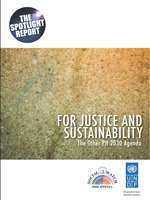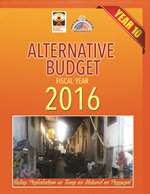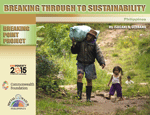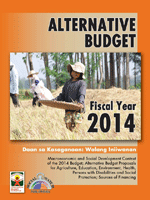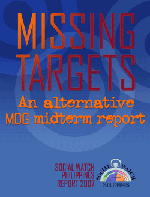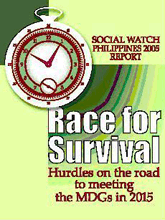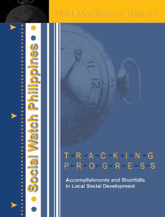Philippines
Published on Wed, 2022-08-03 18:55
The covid-19 pandemic has increased poverty and inequality in the country and has laid bare the weaknesses of the public health and social protection systems, educational systems as well as provision of livelihoods and employment to Filipinos. This has led to catastrophic consequences for workers and their families, the majority of whom are in the informal sector and many of whom are women. Yet, two years since the onset of the Covid-19 pandemic, there has been no fundamental change in the government’s developmental strategy to address these systemic weaknesses and prioritize the care programs and services that our people need. Emerging from what seems to be the worst period of the Covid-19 pandemic, the country is slowly returning to some semblance of ‘normalcy’ (or what is also referred to as ‘the new normal’). |
Published on Fri, 2016-07-01 00:00
“For Justice and Sustainability: The other PH 2030 Agenda” Introduction The Philippines will be free of poverty and will be well on the way to sustainability by 2030. No one will be left behind. That’s the promise, that’s what our government signed up to in 2015. This report, our report, entitled “FOR JUSTICE AND SUSTAINABILITY: The Other PH 2030 Agenda”, is about taking on our government on that promise. It is an attempt by Social Watch Philippines (SWP) to present its view of the stubborn Philippine development dilemma and how it may be overcome. Through this report we offer our support and cooperation in figuring out the sustainability problem and finding lasting solutions to the cyclical problems of high poverty, high inequality and continuing environmental degradation despite or because of economic growth. |
Published on Fri, 2016-05-06 12:33
It has been a decade since Social Watch Philippines (SWP) convened the Alternative Budget Initiative (ABI). The consortium has now blossomed to around one hundred and sixty strong civil society organizations and individuals conducting research and lobby efforts in coming out with annual budget analysis, campaigning against lump sum funds, and engaging the national government and the legislature in the budget process by coming out with a civil society-crafted alternative budget, otherwise called as the Orange Book. Throughout the years, the effort of the consortium to directly engage through the budget process has led to the forging of partnerships with concerned agencies and champion legislators, expansion of the ABI network to more organizations and individuals who share SWP and ABI’s development vision through budget advocacy, and the continuing presence of the ABI in House and Senate to present alternative budget proposals. |
Published on Wed, 2014-07-02 17:33
Breaking Through to Sustainability By Isagani Serrano Social Watch Philippines, 2014. |
| Published on Sun, 2013-09-15 00:00 |
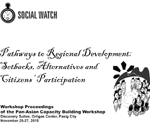
Workshop Proceedings of the Pan-Asian Capacity Building Workshop
Discovery Suites, Ortigas, Pasig City
November 25-27, 2010
|
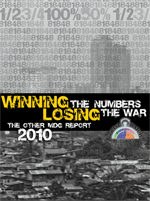
In time for the 10th anniversary of the MDGs, SWP published a citizen’s Shadow Report on the state of MDG progress in the country. The report entitled “Winning the numbers, losing the war: The other MDG report 2010” found that the Philippines is in a worse poverty situation in 2010 than when it started on the MDGs in 2000. “We are losing the war on poverty. Many would still be left behind, and their numbers are simply staggering by any count,” said Isagani Serrano, SWP convenor and editor of the citizens’ report on the MDGs.
|
SUSCRIBE TO OUR NEWSLETTER


